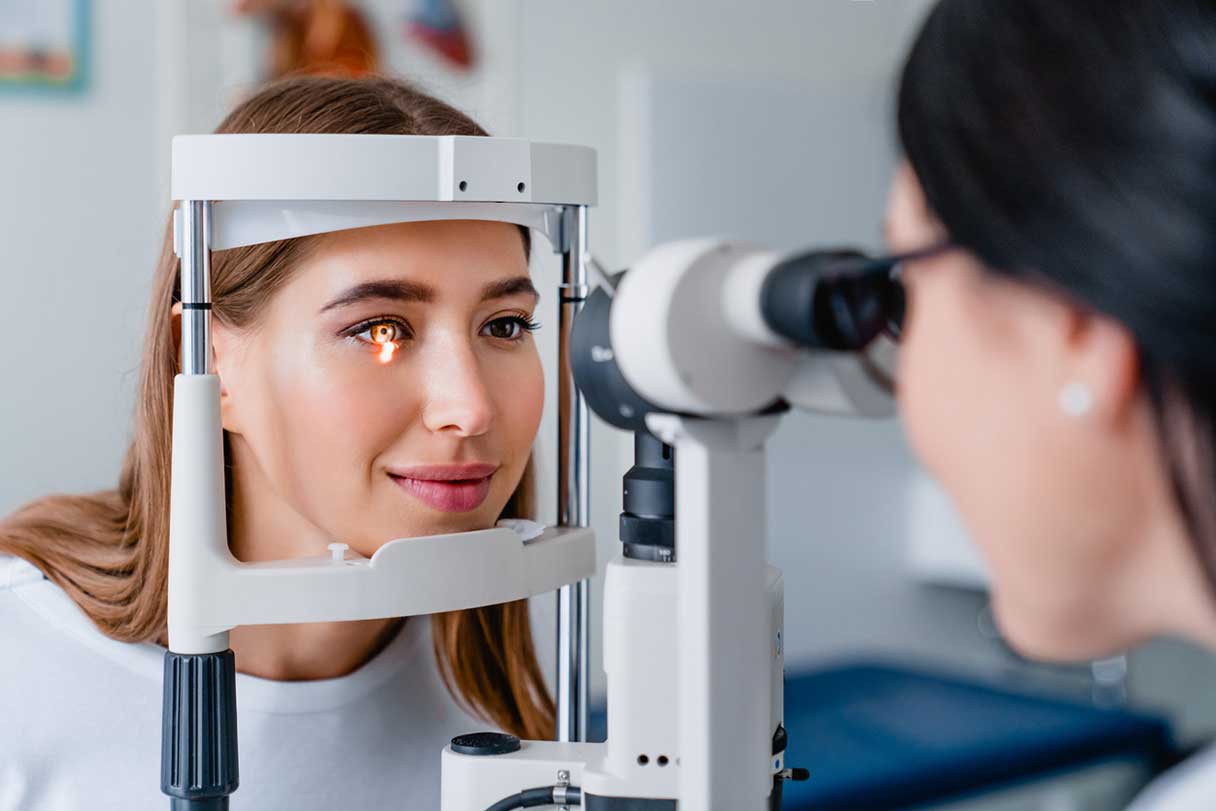Expert Eye Care Panama City FL: Top Providers and Treatments
A Comprehensive Guide to Eye Surgery Treatments Available at Your Eye Doctor's Method
In the realm of ophthalmology, the improvements in eye surgery treatments have opened a world of possibilities for those looking for boosted vision and eye health. From the well-known LASIK eye surgery to the much less acquainted Corneal Transplants, the array of procedures offered at your ophthalmologist's practice can address a range of vision-related concerns. Understanding the nuances of each treatment choice and just how they can possibly transform your vision requires a better check out the details and outcomes connected with these treatments. Allow's explore the diverse landscape of eye surgical treatment therapies that might potentially improve your aesthetic skill and lifestyle.
LASIK Eye Surgery
When considering vision modification procedures, LASIK eye surgery becomes a famous option for individuals looking for lasting enhancement in their vision. LASIK, which represents Laser-Assisted in Situ Keratomileusis, is a preferred refractive surgical procedure that intends to fix common vision troubles such as astigmatism, nearsightedness, and farsightedness. This procedure involves making use of a laser to reshape the cornea, allowing light to be appropriately focused onto the retina, causing clearer vision without the demand for glasses or get in touch with lenses.
One of the vital benefits of LASIK eye surgery is its reasonably pain-free and quick nature. The treatment itself normally takes only around 15 mins per eye, with a lot of clients experiencing boosted vision practically immediately. Furthermore, the recovery time for LASIK is relatively brief, with lots of people able to return to their regular activities within a day or more.

PRK (Photorefractive Keratectomy)
FIRST SENTENCE:
Another sophisticated vision modification procedure similar to LASIK is PRK (Photorefractive Keratectomy), providing efficient services for individuals looking for choices to traditional glasses or contact lenses. PRK is a surgery that improves the cornea utilizing an excimer laser to deal with refractive errors such as myopia (nearsightedness), hyperopia (farsightedness), and astigmatism. Unlike LASIK, PRK does not include producing a flap on the cornea; rather, the external layer of the cornea is carefully removed prior to the laser treatment. This makes PRK a suitable alternative for people with thin corneas or those included in tasks where the danger of eye trauma is greater.
The healing period for PRK is much longer contrasted to LASIK, as the outer layer of the cornea requires time to regenerate. People may experience pain and blurred vision throughout the preliminary recovery phase, however vision progressively enhances over numerous weeks. Your optometrist will give comprehensive post-operative treatment instructions to make sure a smooth recovery process and optimal aesthetic outcomes.
Cataract Surgical Procedure
Cataract surgery, a typical procedure executed by eye doctors, involves removing the gloomy lens within the eye and replacing it with a clear man-made lens dental implant to recover vision clarity. Cataracts happen when the natural lens of the eye ends up being gloomy, causing obscured vision and trouble seeing plainly. Throughout cataract surgical procedure, the eye doctor makes a tiny laceration in the eye and makes use of ultrasound modern technology to damage up the over cast lens, which is after that carefully sucked out. Once the cataract is removed, the synthetic lens, called an intraocular lens (IOL), is inserted to change the natural lens's feature. This IOL assists to concentrate light onto the retina, boosting vision. Cataract surgical procedure is typically performed on an outpatient basis and is recognized for its high success price in enhancing vision and high quality of life for individuals. It is important to consult with your optometrist to determine if cataract surgical procedure is the right alternative for you based on your individual eye health needs.
Corneal Transplants
Corneal transplants, also called corneal grafts, are procedures that involve changing harmed or this post unhealthy corneal cells with healthy contributor cells to enhance vision and alleviate corneal problems. This treatment is usually advised for individuals with corneal scarring, thinning, or various other corneal conditions that can not be treated properly with other techniques such as drug or get in touch with lenses.
Throughout a corneal transplant, the ophthalmologist eliminates the main portion of the harmed cornea and replaces it with a benefactor cornea. This donor cells is thoroughly chosen, examined, and stored to ensure compatibility and lower the threat of denial. Corneal transplants can recover vision, decrease pain or discomfort, and boost the look of the eye.
There are various kinds of corneal transplants, including full-thickness transplants (permeating keratoplasty) and partial-thickness transplants (such as endothelial keratoplasty or former lamellar keratoplasty), with the selection relying on the specific condition being treated. After the surgical procedure, clients call for close post-operative like monitor healing and avoid problems.
Retinal Detachment Surgical Treatment
Complying with effective corneal transplants, an additional vital eye surgery procedure that may be required for sure individuals is retinal detachment surgical treatment, a delicate operation focused on bring back the retina's appropriate position to preserve vision and avoid further issues (eye doctors panama city). Retinal detachment occurs when the retina, the slim layer of cells at the rear of the eye accountable for capturing light and sending visual signals to the brain, pulls away from its regular placement. This splitting up can result in vision loss if not promptly addressed through surgery
Throughout retinal detachment surgical procedure, the ophthalmologist works to reattach the retina to the rear of the eye. There are various surgical techniques readily available, consisting of pneumatic retinopexy, scleral buckle, and vitrectomy, with the selection depending upon the seriousness and specific features of the detachment. If possible, the goal of the surgical treatment is to stop vision loss and enhance or restore vision. After the treatment, patients might need to adhere to a post-operative care strategy to enhance recovery More Bonuses and visual end results. Early detection and treatment of retinal detachment are essential in preserving vision and protecting against long-term vision problems.
Final Thought

In the world of ophthalmology, the developments in eye surgery treatments have actually opened up a world of opportunities for those looking for enhanced vision and eye wellness. From the widely recognized LASIK eye surgery to the much less familiar Corneal Transplants, the selection of procedures readily available at your eye doctor's method can resolve a variety of vision-related problems. It is important to seek advice from with your eye doctor to establish if cataract surgery is the right choice for you based on your specific eye health requirements.
Adhering to effective corneal transplants, another essential eye surgery procedure that might be essential for certain individuals is retinal detachment surgical treatment, a fragile procedure intended at restoring the retina's correct setting to preserve vision and stop more complications.In final thought, there are various eye surgical procedure treatments available at your eye physician's technique, consisting of LASIK, PRK, cataract surgical procedure, corneal transplants, and retinal detachment surgery.